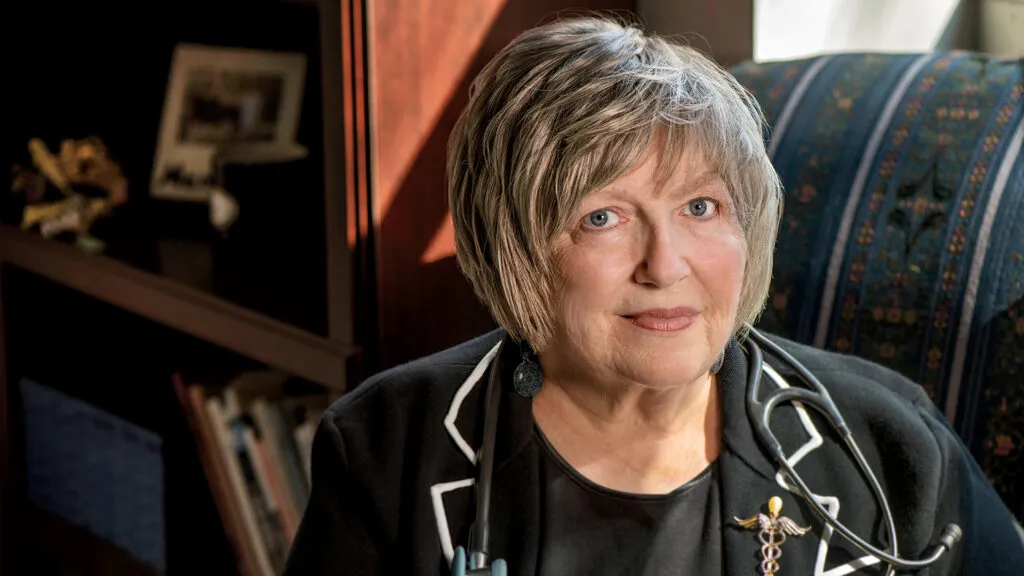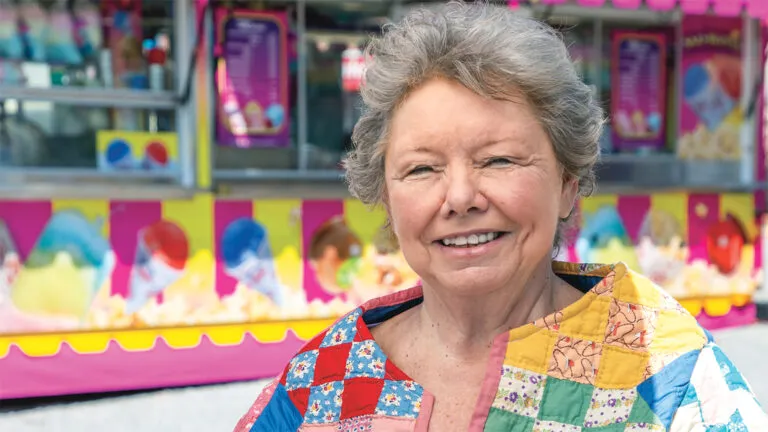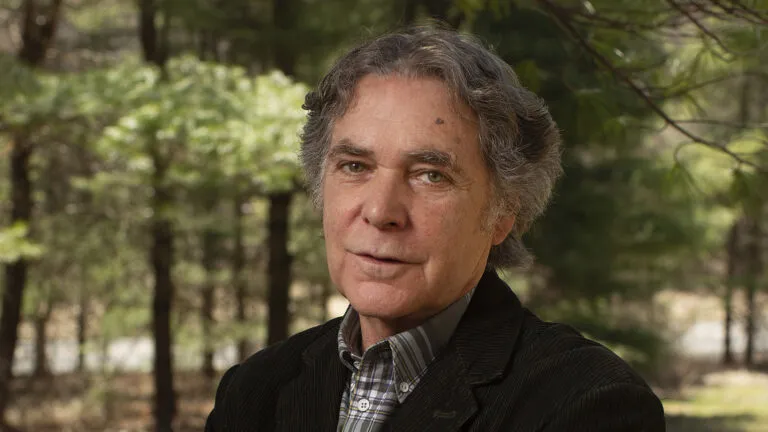In my 45 years as a registered nurse, I’ve seen how chronic illness and pain can isolate people, taking over their lives until it seems as if there’s no room for friends or family, even God. I know firsthand how dealing with physical and emotional pain can be one of the loneliest experiences you can ever have. It can even have physical and mental health consequences. Loneliness can make a person more at risk for cardiovascular disease, stroke, Type 2 diabetes, depression and a host of other ailments.
It’s a big problem. A study from 2018 found that half of Americans say they feel lonely. But there are things you can do to help you make deeper connections and overcome loneliness. I traveled regularly from our home in West Virginia to the Cleveland Clinic, where I underwent surgery to remove the painful tumors on the inside and outside of my face. I missed a lot of school and was ostracized by the other kids when I did go.
Mom had been a teacher, and she gave me what seemed like a curious assignment. In every waiting room at the clinic, I was to interview a person, then ask what their nurses did that was most helpful. Mom knew my time in hospitals had sparked an interest in one day becoming a nurse.
Over the years, I gained far more than a collection of stories. On every visit, there were patients I recognized, who made a point of talking to me. “How did your test turn out, Roberta?” “Are you still having that dizziness?” “How are things in school?” “You’re going to make a great nurse.” These were people who cared about me, not just as a fellow patient but as a person. It got so I looked forward to going to the Cleveland Clinic and reconnecting with them.
I’ve seen how reaching out to strangers has helped others as well. A couple years ago, I noticed the most joyful man at Starbucks. He’d buy his coffee, then steer his scooter over to a table near the cash register. He chatted up the other customers as they waited in line. Some people already seemed to be acquainted with him. For others, like me, it was clearly their first time. But no one was put off by the man. His greeting was genuine, and it brought a smile to everyone he met. Me included.
One day, I ran into him at the information desk in my doctor’s office. He volunteered there, though I’d never noticed him before. When he spotted me, he said, “Roberta! My friend who always reads a magazine while she sips her chai.” I asked how he was doing, and we enjoyed a short chat. Because he’d made a point of reaching out, we were no longer strangers.
Don’t shut yourself off from others
Chronic illness and pain can make you close yourself off. I’ve seen it happen to my patients and to me. I begin feeling as if I’ve been too much of a burden to my friends. That they’re surely tired of hearing about my aches and pains. I pull back, telling myself they don’t want to spend time with me, despite their repeated invitations to go out for lunch or antique shopping. A few years ago, I underwent my thirty-seventh surgery. My face was bandaged. I felt awful. I stopped answering my phone. Didn’t return messages. You’re turning your back on the very people who are trying to help you, I scolded myself. But it did no good. The voices telling me no one could possibly want me as a friend were even stronger.
Some friends stopped contacting me altogether. I understood. It became a kind of cycle of loneliness since I didn’t return calls.
Then, Bennetta, an old friend, left a message. She was the head nurse in the operating room at a hospital where I’d worked. “I’m getting a group of nurses together for lunch, and we’d really like you to join us,” she said. “It will be so much fun.” I played that message over and over. Someone wanted me!
I desperately wanted to see these old friends. But I’d have to do a load of laundry to have something decent to wear, and I had absolutely zero energy. Then I thought about how Bennetta had always been there for me, encouraging me. “You can do anything you set your heart to, Roberta,” she told me.
Doing the laundry and driving to a restaurant didn’t seem like such a monumental task after all. They were eating at a place just down the road. In an hour, I was ready to go.
I couldn’t believe how happy everyone was to see me. We told stories of the old days, and I laughed until I was crying. When the lunch was over, I didn’t want to leave. At least temporarily, my pain was gone. I had more energy than I’d had in weeks.
I knew the reason why. Connecting with others is actually healing. It releases the body’s natural pain-killing endorphins as well as oxytocin, the bonding or “cuddle” hormone mothers produce when they give birth. That’s why a hug can so often do wonders.
Find a support group
When I was working as a nurse in the VA’s gastroenterology department, I noticed that my patients with Crohn’s disease seemed particularly withdrawn. Gordon, a veteran in his thirties, reminded me a lot of myself. He wanted to meet people, but it was hard for him to take the first step. His depression and loneliness fed off each other. He was losing hope that anything would ever change.
“If I could get a group of Crohn’s patients together, would you join us?” I asked him one day. He was interested. So were the others. They were all ages, different branches of service. The first meeting was a bit awkward—until they realized how much they had in common, things no one else understood. Soon they were crowded around a table, mapping out the restrooms at the mall, a guide in case of emergency.
In the months that followed, I brought in doctors and dietitians to discuss symptom management, diet, stress and lifestyle issues. This new knowledge empowered the patients and gave them a sense of control, but it was much more effective in a group than if I had given them the information individually.
The group forged lasting friendships and planned their own activities, fishing trips and hikes, no longer worried about being within five minutes of a restroom. And Gordon? With the self-confidence he gained, he met the love of his life. The two of them married and found a shared passion in lay ministry. “Thanks,” he told me. “That group changed my life.”
I’d only wanted to help the veterans, but their energy and camaraderie inspired me. I decided to become more active in the neurofibromatosis community and volunteered to become a nurse-advocate for patients and their families. For the first time, I found purpose in this affliction that had brought me such misery and isolation. It was a point of connection. It gave me comfort to meet people who understood what I’ve gone through and introduced me to people who give me strength even today.
Get a pet
Sometimes the most reliable friends are the four-legged variety. There’s an elderly gentleman—Jack—in my neighborhood who ran his own business until illness forced him to retire. His wife died, and he grew even more isolated and lonely. I prayed for him and tried to reach out, but we never quite connected.
Then one day, I looked out to see Jack coming down the sidewalk in his electric wheelchair, an adorable black dog trotting alongside him on a leash. I went outside to ask him about his new companion. “I got him at a shelter,” Jack told me. “This little feller doesn’t leave my side. He just makes my heart feel good.”
I picked up a box of dog biscuits later at the grocery. The next time I saw Jack and his dog pass by, I handed Jack the treats. His face stretched into a wide grin as he tucked them into a bulging canvas bag hanging from his wheelchair. “Will ya look at this?” he said to his furry friend. “Now we have five different kinds.” Seems four other neighbors had come up with the same idea. Jack’s best friend had proved to be a people magnet too.
Deepen your faith
God never wants us to feel lonely, but there are spiritual benefits to alone time. When things are going well, I find myself praying almost in passing, as if I’m too busy enjoying life to give God my full attention. My Bible reading can get shortchanged too.
Last winter, I was given a medication in error; it made me desperately sick. I could barely walk from my bed to a chair. I prayed, a litany of all of my problems and what I needed God to do for me. I rehashed all the times in my life I’d felt down and lonely.
I grew weaker. Too weak to even find the words to pray. And it was there in that silence, in my aloneness, that I clearly heard God’s voice. It wasn’t thunderous. Or even really audible. More a soft beckoning in my spirit that filled the stillness, an absolute knowing.
I will never leave you or forsake you, Roberta.
I began to reflect on the faith walks of my patients. Bryan, a man dying from AIDS, who told me how God was with him every agonizing moment. So many of my hospice patients received comfort beyond measure from the source of all comfort.
Beset by loneliness, I made a startling discovery: I’d never felt God’s presence as I did then. It was only by surrendering that I truly knew his strength. On my desk, I found a note card and wrote to a woman I hadn’t talked to in months, reaching out, reminded again that no matter how isolated we might feel, none of us are ever alone.
For more inspiring stories, subscribe to Guideposts magazine.





